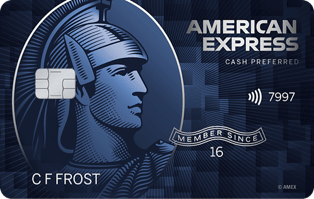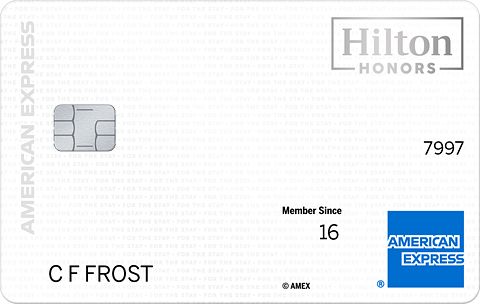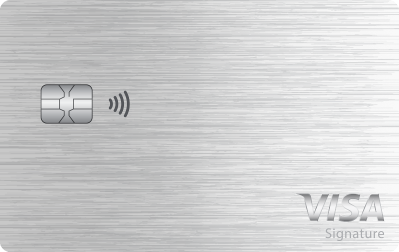- myFICO® Forums
- FICO Scoring and Other Credit Topics
- Personal Finance
- Re: Question about owning 2 vehicles
- Subscribe to RSS Feed
- Mark Topic as New
- Mark Topic as Read
- Float this Topic for Current User
- Bookmark
- Subscribe
- Mute
- Printer Friendly Page
Question about owning 2 vehicles
Is your credit card giving you the perks you want?
Browse credit cards from a variety of issuers to see if there's a better card for you.
- Mark as New
- Bookmark
- Subscribe
- Mute
- Subscribe to RSS Feed
- Permalink
- Report Inappropriate Content
Re: Question about owning 2 vehicles
@Horseshoez wrote:I've owned two or more vehicles several times. Honestly, owning (free and clear) and insuring two older vehicles to cover your bases can be significantly less expensive compared to owning a new(ish) vehicle and making payments on it.
As for what the various pundits say about this type of plan, one shouldn't give a rat's hind parts what they say, they aren't you, so do what works best for you.
And a second ^^^^This
You're all good. Most people with big car loans these days are underwater more than value of both your vehicles. Those are the people with a financial screw loose, IMHO.
- Mark as New
- Bookmark
- Subscribe
- Mute
- Subscribe to RSS Feed
- Permalink
- Report Inappropriate Content
Re: Question about owning 2 vehicles
Thanks for the replies and yes I do recognize that I still don't have expensive vehicles and the average American have at least one new vehicle and are constantly paying car loans for the majority of their lives.



Revolving history: 2 years 4months across the board
AAoA:
TU: 5yrs 10months
EX: 2yrs 2 months
EQ: ~5yrs 6 months
Inquiries: Ex: 1/12. EQ: 1/12 Tu: 1/12
As of 10-5-2020
Quicksilver $3,000
Discover It Miles $17,500
Chase Freedom Flex $4,400
Amazon Prime Store Card $6,000
Walmart MC $2,500
Wells Fargo Active Cash $8,000
Citi Custom Cash $8,400
Verizon Visa $20,000
- Mark as New
- Bookmark
- Subscribe
- Mute
- Subscribe to RSS Feed
- Permalink
- Report Inappropriate Content
Re: Question about owning 2 vehicles
@Beast26 wrote:Thanks for the replies and yes I do recognize that I still don't have expensive vehicles and the average American have at least one new vehicle and are constantly paying car loans for the majority of their lives.
When I owned my own business I leased cars for over 20 years. Why? For the simple reason a leased vehicle was treated as a simple business expense versus the need to muck about with depreciation and all that jazz. Since taking my first real job in decades back in 2013 I've owned both used cars and one new car; the used cars were expensive to keep in in the tip-top condition I require for something I drive, and in the end, something new was probably in my best interest, but my used cars served me well for the most part.
I now have my first new car (a truck actually, my first) since 2009, and while it hasn't been inexpensive given I opted to finance it for only 48-months, it will be fully paid off in October of next year, and given it is a Toyota Tacoma and will likely have less than 35,000 miles on it by then, I could argue its cost per mile will be lower than any of my used cars once the time comes to dispose of it. Yeah, having my first car payment in over a decade is a little annoying, but hey, I'm old and this may be the last new car I ever buy, so I thought I'd splurge. ![]()
Chapter 13:
- Burned: AMEX, Chase, Citi, Wells Fargo, and South County Bank (now Bank of Southern California)
- Filed: 26-Feb-2015
- MoC: 01-Mar-2015
- 1st Payment (posted): 23-Mar-2015
- Last Payment (posted): 07-Feb-2020
- Discharged: 04-Mar-2020
- Closed: 23-Jun-2020
I categorically refuse to do AZEO!






In the proverbial sock drawer:



- Mark as New
- Bookmark
- Subscribe
- Mute
- Subscribe to RSS Feed
- Permalink
- Report Inappropriate Content
Re: Question about owning 2 vehicles
Different people are going to have different needs. Those that own their own business, will be able to deduct a lease for business, whereas someone who finances can not. As for non-business travels and how business owners navigate those grounds, that's something else. Nothing ever matters until you are audited, and even that doesn't matter so long as legit.
As for those that personally lease versus finance (or pays in cash), thats another situation entirely. So, since I have some experience in this, I can provide a real world example. This number will fluxuate depending on yearly make and model, and lease cost of course. Let's keep insurance outside of the following example, as that's adjusted based on profile, and who you shop around with.
My in-laws lease, to the tune of $14,500 each year for two vehicles. Projected expenditure over 15 years equates to $217,500 to lease two vehicles annually. We purchase few year old vehicles, cash in hand upwards of $20-$25k each vehicle times two. Let's say $50,000. For two SUVs. We run them into the ground spanning 15 years, maintaining them well, and paying for maintenance along the way. This is quite ok for us, since we don't get bored with our vehicles, and have zero need to upgrade, change out, or replace something that works well. Vehicle ownership to us is last on the line of priority, as we place priority, on other things of value that matter to us. We own nice vehicles today, but we don't own extravagent bling-bling vehicles.
The difference in savings of $167,500, is more than adequate to pay for maintenance spanning 15 years compared to a lease. And more than enough to pay cash, for any vehicle that needs replacing in the future. In our case, we own more than three excellent vehicles, all paid for in cash. You don't get to do this leasing, without spending a significant price to lease.
You have to put your priorities where they need to be. If you want one, two, three, or even more vehicles, then make the numbers work and do it. In the example above, we all make relatively close to the same, but place entirely different values on commodities.
Multiple weeks in free credit reward vacations.
$X,XXX in bank rewards in only 12 months.
I like FREE...
800+ FICO.
Making all numbers dance on a financial ledger.
Abuse that score responsibility.
- Mark as New
- Bookmark
- Subscribe
- Mute
- Subscribe to RSS Feed
- Permalink
- Report Inappropriate Content
Re: Question about owning 2 vehicles
As a general rule, I agree with @Realist's post above, leasing for an individual makes little financial sense. Prior to my current vehicle, bought new, the last new car I purchased for myself (i.e. not for my business), was all the way back in 1982; feels kind of crazy to think about it that way. This time around, Toyota was offering 2.49% for a 48-month note (oddly enough, the interest rate was higher for both the 36-month and the 60-month, not sure I understand that logic), so instead of paying cash for the Tacoma, I financed it.
Chapter 13:
- Burned: AMEX, Chase, Citi, Wells Fargo, and South County Bank (now Bank of Southern California)
- Filed: 26-Feb-2015
- MoC: 01-Mar-2015
- 1st Payment (posted): 23-Mar-2015
- Last Payment (posted): 07-Feb-2020
- Discharged: 04-Mar-2020
- Closed: 23-Jun-2020
I categorically refuse to do AZEO!






In the proverbial sock drawer:



- Mark as New
- Bookmark
- Subscribe
- Mute
- Subscribe to RSS Feed
- Permalink
- Report Inappropriate Content
Re: Question about owning 2 vehicles
DW and I owned 4 vehicles: a 2006 Honda Accord hybrid, a 2007 Toyota Highlanger hybrid, a 2017 Toyota Highlander and a 2018 Audi A6 3.0T. All were cash purchases so no monthly payments.
The older vehicles had relatively low liability only insurance and very low yearly tag fees. I used the Honda as a commuter car to/from work (40 miles each way) and for winter driving. It saved me $ on gas vs the Audi, reduced mileage depreciation on the Audi and eliminated potential for Audi rust.
Wife drives the newer Toyota Highlander. Daughter used the older one. When she finished grad school and moved across country, sold the Honda in 2021. I then used the old Toyota for commuting and carrying bikes for trail riding.
Unfortunately the hybrid battery died this Spring so sold the old Toyota for parts. Not looking forward to mileage depreciation and potential rust on the Audi.
Yes- having a spare vehicle also eliminates need for a rental car. We appreciated that benefit over the years.
OP should keep both vehicles as long as they serve a purpose.
Fico 8: .......EQ 850 TU 850 EX 850
Fico 4 .....:. EQ 809 TU 823 EX 830 EX Fico 98: 842
Fico 8 BC:. EQ 892 TU 900 EX 900
Fico 8 AU:. EQ 887 TU 897 EX 899
Fico 4 BC:. EQ 826 TU 858, EX Fico 98 BC: 870
Fico 4 AU:. EQ 831 TU 872, EX Fico 98 AU: 861
VS 3.0:...... EQ 835 TU 835 EX 835
CBIS: ........EQ LN Auto 940 EQ LN Home 870 TU Auto 902 TU Home 950
- Mark as New
- Bookmark
- Subscribe
- Mute
- Subscribe to RSS Feed
- Permalink
- Report Inappropriate Content
Re: Question about owning 2 vehicles
I've owned two or even three cars over the years. Insurance isn't too bad if you only carry liability on an older, paid for, car. Multi car discount.
Right now, my second car is a '81 mb 280 sl. Just got it running for the season. Only took a $75 battery and a day and a half working on the clutch hydraulics. One nice thing is the historic plates don't expire, they're good as long as I can keep it running.
Maintenance is a real issue with older cars. If you don't do it yourself, it becomes problematic.
- Mark as New
- Bookmark
- Subscribe
- Mute
- Subscribe to RSS Feed
- Permalink
- Report Inappropriate Content
Re: Question about owning 2 vehicles
@FicoMike0 wrote:I've owned two or even three cars over the years. Insurance isn't too bad if you only carry liability on an older, paid for, car. Multi car discount.
Right now, my second car is a '81 mb 280 sl. Just got it running for the season. Only took a $75 battery and a day and a half working on the clutch hydraulics. One nice thing is the historic plates don't expire, they're good as long as I can keep it running.
Maintenance is a real issue with older cars. If you don't do it yourself, it becomes problematic.
But, old cars are easier to work on, so you save on mechanics fees. There are some things on these newer cars that a normal person just can't do. In fact, it irritates me, but there are things on newer cars that only dealerships can work on. That stuff sucks because they charge 2x-3x the going rate.









FICO® 8: 833 (Eq) · 827 (Ex) · 812 (TU)
- Mark as New
- Bookmark
- Subscribe
- Mute
- Subscribe to RSS Feed
- Permalink
- Report Inappropriate Content
Re: Question about owning 2 vehicles
What about if my beater car is a 2012 Nissan versa that needed a new cvt transmission at 80,000 miles should I keep this car even though I got the transmission replaced or should I drive it until the transmission possibly goes out again?



Revolving history: 2 years 4months across the board
AAoA:
TU: 5yrs 10months
EX: 2yrs 2 months
EQ: ~5yrs 6 months
Inquiries: Ex: 1/12. EQ: 1/12 Tu: 1/12
As of 10-5-2020
Quicksilver $3,000
Discover It Miles $17,500
Chase Freedom Flex $4,400
Amazon Prime Store Card $6,000
Walmart MC $2,500
Wells Fargo Active Cash $8,000
Citi Custom Cash $8,400
Verizon Visa $20,000
- Mark as New
- Bookmark
- Subscribe
- Mute
- Subscribe to RSS Feed
- Permalink
- Report Inappropriate Content
Re: Question about owning 2 vehicles
@Beast26 wrote:What about if my beater car is a 2012 Nissan versa that needed a new cvt transmission at 80,000 miles should I keep this car even though I got the transmission replaced or should I drive it until the transmission possibly goes out again?
2012 Nissan with a new transmission? Drive that sucker another 100k miles. Engine will easily go 250k miles.









FICO® 8: 833 (Eq) · 827 (Ex) · 812 (TU)




